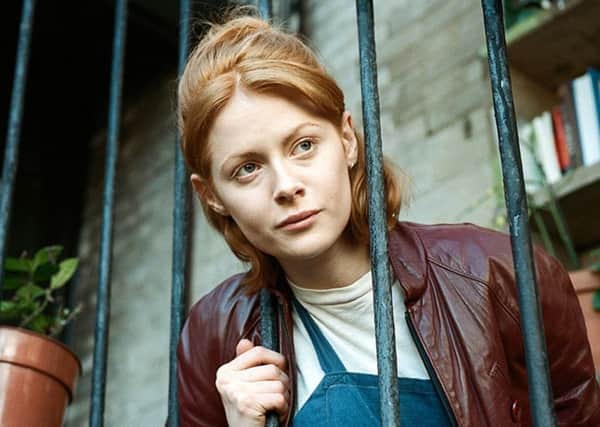Film review: Edinburgh International Film Festival


Various venues, Edinburgh
With regards this last category, it’s probably best to avoid Wakefield, which is one of the bigger films screening over the festival’s final weekend. Starring Bryan Cranston as an embittered husband who decides to disappear from his life by hiding out in his garage and spying on his wife and kids, it might sound intriguing (it’s based on an E.L. Doctorow story), but as a film it’s tonally incomprehensible. Writer/director Robin Swicord pads proceedings out with cutesy voice-over, flashbacks and ill-judged moments of comedy that try to get us on side with Cranston’s character instead of exposing him for misogynistic creep he clearly is.
Similarly rubbish is Access All Areas, yet another duff British film set against the backdrop of the music industry. Rivalling last week’s Modern Life of Rubbish for annoying performances and cringe-worthy dialogue, it’s a music-festival-set coming-of-age story in which British youth culture is once again presented like a bad episode of Hollyoakes, not a vibrant subculture worthy of cinematic representation. None of the teenage characters sound in any way authentic either.
Advertisement
Hide AdNext to this of kind of barrel-scraping fare, Strange Weather – which has another screening today – at least feels like a properly thought-through movie with an interesting character at its centre. Holly Hunter plays a small-town autodidact called Darcy who turns quasi detective in an effort to figure out the last movements of her twenty-something son six years on from his suicide. Hunter is good as the Faulkner-referencing lead and she has a good rapport with Gone Girl’s Carrie Coon, cast here as the friend who accompanies Darcy on her quest for answers. Though plotting isn’t the film’s strong point, it’s an interesting portrait of a middle-aged woman refusing to be tethered by societal conventions.
Films built around complex women were also the source of two of the most notable films of the festival’s middle weekend. Emily Beecham won a deserved best British performance award for her titular turn as a young Londoner unapologetic about her chaotic lifestyle in Daphne. The debut feature from Scottish director Peter Mackie Burns, it’s the sort of film that American indie directors have been making for years, but is rare enough in the UK to feel like a welcome anomaly.
Maudie, meanwhile, benefitted from an unsentimental performance from Sally Hawkins as the arthritic Canadian folk artist Maud Lewis. Irish director Aisling Walsh smartly keeps the film’s style as simple as Lewis’s paintings, giving both Hawkins and Ethan Hawke (cast as Lewis’s taciturn, illiterate husband) room to explore the intricacies of their unlikely union.
After these films both Edie and Story of a Girl were a little disappointing. The former featured Sheila Hancock as a recent widower determined to make up for lost time by travelling to the Highlands to climb Suilven. Though Hancock is good in the role, and Kevin Guthrie is quite charming as her young guide, the film’s faux crowd-pleasing tone is condescending in ways its eponymous heroine surely wouldn’t tolerate. Story of a Girl was notable mainly for bringing a little Hollywood glamour to the festival in the form of director Kyra Sedgwick and her husband Kevin Bacon. Alas, the film itself fails to transcend its TV movie origins. Revolving around a young girl dealing with the fall-out of a sex tape going viral on social media, It feels very much like an afterschool special rather than the hard-hitting indie film it could have been.
Sedgewick’s wasn’t the only TV movie in the festival. Eleanor Coppola’s debut feature Paris Can Wait was produced by the same network (Lifetime) and similarly felt very TV-like in scope. Starring Diane Lane as the neglected wife of a movie producer (Alec Baldwin), the film – which takes Lane’s character on a journey of self-discovery through France with a rogue-ish food lover – is gentle to the point of being soporific. The fact that the festival showed this Coppola production, but not Sofia Coppola’s The Beguiled, also felt emblematic of EIFF’s lack of pulling power when it comes to screening films that might actually generate some buzz and excitement.
Indeed there were plenty of notable absentees from the programme. Where, for instance, was the excellent Judd Apatow produced inter-racial romantic comedy The Big Sick? or Steven Soderbergh’s new movie Logan Lucky? In its 70th anniversary year, EIFF could certainly have used a few more heavy hitters like these to at least give the illusion of ongoing relevance.
Still, kudos for a great opening night movie.
ALISTAIR HARKNESS
EIFF, until 2 July